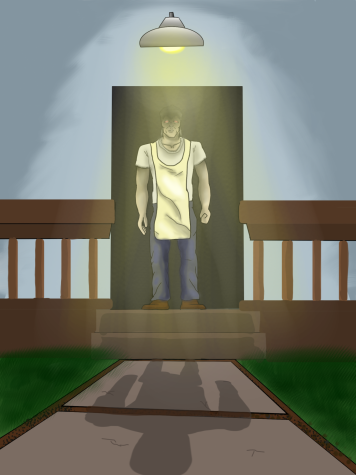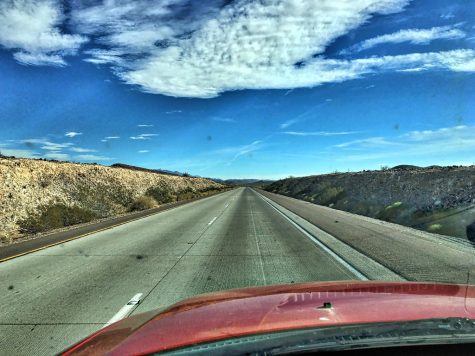Did Facebook Decide the 2016 Election?
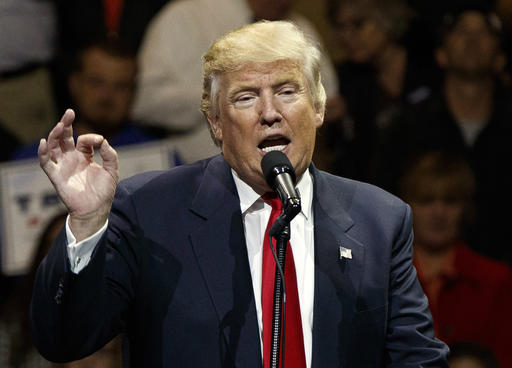
In this Thursday, Dec. 1, 2016 file photo, U.S. President-elect Donald Trump speaks during a “USA Thank You” tour event in Cincinnati. A spokeswoman for producer Mark Burnett said Thursday, Dec. 8, 2016, that President-elect Trump has an executive producer credit on “The New Celebrity Apprentice.” The series, which was taped last February, debuts Jan. 2 with Arnold Schwarzenegger replacing Trump as host.
This was the craziest election ever.
Our country elected the first president ever who has never held a position in government before. It was the fifth time in U.S. history that a candidate won the electoral college and lost the popular vote. And more importantly, it was an election where the two candidates were the most unpopular candidates in U.S. history.
The country had two choices this year: elect Hillary Clinton–who has been involved in a large number of scandals during her time in government and promised to keep us on the same path we were on–or elect Donald Trump–who has also been involved in lots of controversy, and promised to fix whatever he saw was wrong with the country in the first place.
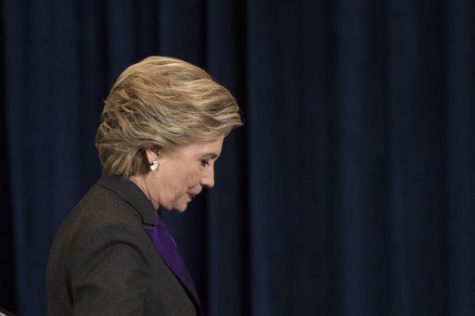
Democratic presidential candidate Hillary Clinton walks off the stage after speaking in New York, Wednesday, Nov. 9, 2016.
Over 61 million people decided this year that Donald Trump was the candidate that they wanted, according to CNN. Against all the projections, polls, and expectations of politicians from both sides, Trump surprisingly won.
How the heck did this happen?
After nearly a month of digesting the results of the election, we’re starting to finally get answers for how we elected Trump to be our president. Aside from the clear miscalculations of the voting demographics, one issue has garnered far more national attention recently than anything else: fake news on social media.
Based on recent studies by the Pew Research Center, nearly 44% of all U.S. adults get their news from Facebook. Now, this is acceptable…as long as you are following legitimate and fair sources, like the Washington Post and the New York Times. These sources use factual information and at least try to be appealing to audiences of both liberals and conservatives.
However, one of the great things about Facebook is that we are able to see the things that we want to see, and avoid the things we don’t like. The same thing goes for the news we can get access to on social media.
Facebook’s algorithm recognizes what you like and don’t like in your feed, and will present posts from other sources based on that information. This is how fake news can spread around and be seen by millions of people.
There are hundreds of websites that are made to specifically cater to people based on their political views – some radically on the right or the left. These smaller organizations don’t have the fact-checking processes that the established news sources have, so their information can sometimes be only half-true, or flat-out false.
This trend of fake news has spread like a wildfire on Facebook.
Buzzfeed recently found that posts from twenty of the most followed news-fabricating organizations on Facebook get nearly 1.5 million more shares, reactions, and comments than posts from twenty of the most followed legitimate news sources, including the New York Times and the Washington Post.
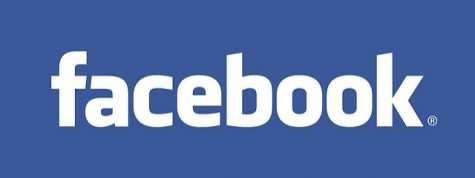
Facebook is one of the largest social media sites in the world, and it’s been a big reason why fake news has spread across the internet.
These stories commonly have a shocking headline in order to get people to click and read these articles. This is known as “clickbaiting.”
Here’s some real examples of clickbait titles that you may have seen on Facebook: Pope Francis Shocks World, Endorses Donald Trump for President, Releases Statement; WikiLeaks CONFIRMS Hillary Sold Weapons to ISIS… Then Drops Another BOMBSHELL! Breaking News; and FBI Agent Suspected in Hillary Email Leaks Found Dead in Apparent Murder-Suicide.
These titles are what organizations use to get people to take the bait on their stories, and although all of the headlines above are false, millions of people believe them.
This is a big problem, because with social media, fake news can spread to millions of people, and could get to such a point that people don’t know the difference between the real and the fake news, and could start to lose all trust in the legitimate media.
And this is how Trump was able to gain so much popularity: he was able to use social media to make himself look better and smear Clinton more effectively with many of these fake stories.
Trump is one of the first candidates to use this fake news on a regular basis during his campaign.
He’s claimed that Obama wasn’t born in the US, then denied that he did, than said Clinton started the whole issue. This was a debunked news story from the Political Insider titled: “7 News Stories from 2009 that PROVE Hillary Started Obama ‘Birtherism’ – Media is LYING!”
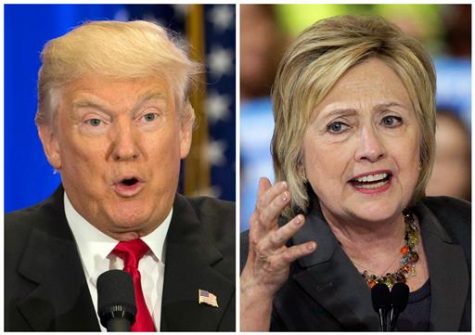
This photo combo of file images shows U.S. presidential candidates Donald Trump, left, and Hillary Clinton.
He claimed that he wasn’t in support of the Iraq War even though it’s been repeatedly confirmed that he did. Howard Stern, who interviewed Trump back in 2002, has said that he asked Trump if he would support an invasion of Iraq and Trump said he would. The interview was recorded and has been released from CNN for months. Trump, however, hasn’t backed down from his claim that he never said he supported the Iraq War, and has continued his criticism of the media for ‘trying to take him down.’ His supporters believed him, rather than the truth.
He’s also claimed that global warming is a hoax created by the Chinese, then denied he ever did. His claim can be traced back to his tweet back on November 6th, 2012, and has been followed by a number of other tweets in which he calls global warming “an expensive hoax.”
But conservatives are definitely not alone in the business of fake news; liberals are just as guilty. They’ve made up several stories and quotes to make Trump look worse. One of the most popular of those quotes is a fake Trump interview with People Magazine, where he mentions that if he were to run as president, he would run as a Republican because they’re dumb enough to believe anything on Fox News. Trump never said this, yet millions of people believed it and shared it with their friends.
The point is, fake news on social media has become a very serious problem that has plagued the internet, and it’s something that many of us have seen as well.
However, there is good journalism out there. The New York Times and The Washington Post are just two of the many reliable news sources. We the public need to invest in them, because we know that they are going to produce honest, objective news.
Facebook and Google are already taking initiatives to delete and clean out these fake news stories from appearing. Facebook founder, Mark Zuckerberg, has recently spoken about this fake news issue on his Facebook, saying, “We’ve been working on this problem for a long time and we take this responsibility seriously. We’ve made significant progress, but there is more work to be done.””
President Obama also had expressed his concern with the growing fake news dilemma during his trip to Berlin during November. “If we are not serious about facts and what’s true and what’s not — and particularly in an age of social media where so many people are getting their information in sound bites and snippets off their phones — if we can’t discriminate between serious arguments and propaganda, then we have problems.”
There’s a lot of work that still needs to be done. The divisions between the two sides on the political spectrum are deep and bitter, and the tension in the country is at an all time high.
Donald Trump will be our president, and that’s something that everyone needs to accept, no matter what. The country needs to heal its divisions and unite behind him. However, if he does something that is similar to his behavior during his campaign, we need to hold him responsible for that.
If we can all get the same truthful news and be well informed about the issues surrounding our country, the country’s trust in the media can begin to restore itself, and we can have a much less aggressive political environment between both the political parties, and the people of our country.



